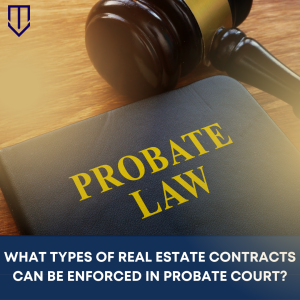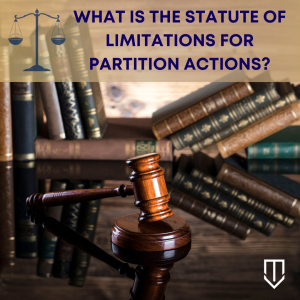 Yes, although the tenant is not allowed to exclude the non-consenting owners. The reason for this is grounded in ancient legal doctrine regarding the “right to possession” that all co-owners of property share together. Each owner may exercise this right, and each may grant it to a third party, should they so choose, even without the consent of the other owners.
Yes, although the tenant is not allowed to exclude the non-consenting owners. The reason for this is grounded in ancient legal doctrine regarding the “right to possession” that all co-owners of property share together. Each owner may exercise this right, and each may grant it to a third party, should they so choose, even without the consent of the other owners.
While this may be legally allowed, however, it rarely results in anything other than trouble and lawsuits. In these situations, getting the right real estate attorney by your side can make all the difference. At the Underwood Law Firm, our attorneys are well-versed in the law surrounding co-ownership and the rights and duties accompanying it. Here, we’re with you every step of the way.
 California Partition Law Blog
California Partition Law Blog



 Real estate contracts are an expansive field of both law and life.
Real estate contracts are an expansive field of both law and life.  In California, a real estate investment trust is “any unincorporated association or trust formed to engage in business and managed by, or under the direction of, one or more trustees for the benefit of the holders or owners of transferable shares of beneficial interest in the trust estate and (1) that formed for the purpose of engaging in business as a real estate investment trust under the Federal Internal Revenue Code, (2) the sale of the shares of which has been qualified at any time by the Commissioner of Business Oversight pursuant to the Corporate Securities Law of 1968, and (3) that in good faith has commenced business as a real estate investment trust.” (Cal. Corp. Code
In California, a real estate investment trust is “any unincorporated association or trust formed to engage in business and managed by, or under the direction of, one or more trustees for the benefit of the holders or owners of transferable shares of beneficial interest in the trust estate and (1) that formed for the purpose of engaging in business as a real estate investment trust under the Federal Internal Revenue Code, (2) the sale of the shares of which has been qualified at any time by the Commissioner of Business Oversight pursuant to the Corporate Securities Law of 1968, and (3) that in good faith has commenced business as a real estate investment trust.” (Cal. Corp. Code  An action for accounting is an equitable action seeking to determine the amount owed to the parties of an action when damages are uncertain. “An accounting is an equitable proceeding which is proper where there is an unliquidated and unascertained amount owing that cannot be determined without an examination of the debits and credits on the books to determine what is due and owing.” (
An action for accounting is an equitable action seeking to determine the amount owed to the parties of an action when damages are uncertain. “An accounting is an equitable proceeding which is proper where there is an unliquidated and unascertained amount owing that cannot be determined without an examination of the debits and credits on the books to determine what is due and owing.” ( A
A  A “TIC” Agreement is a contractual agreement between tenants in common to real property. Because each tenant in common is a co-owner of the property, these agreements can help spell out the rights of each, preventing future disputes over payment or occupation. And, if the dispute cannot be prevented, the agreement, acting as a binding contract, provides a clear guideline for a judge to use in a court action, ensuring that the lawsuit moves along as quickly as possible.
A “TIC” Agreement is a contractual agreement between tenants in common to real property. Because each tenant in common is a co-owner of the property, these agreements can help spell out the rights of each, preventing future disputes over payment or occupation. And, if the dispute cannot be prevented, the agreement, acting as a binding contract, provides a clear guideline for a judge to use in a court action, ensuring that the lawsuit moves along as quickly as possible. 
 Yes, but only in specific circumstances. When thinking of lawsuits, most people associate them with individuals. John may sue Mary for battery, for example. But this isn’t always the case. A large part of the law is devoted to virtual representation because some people, like minors, simply cannot file suit.
Yes, but only in specific circumstances. When thinking of lawsuits, most people associate them with individuals. John may sue Mary for battery, for example. But this isn’t always the case. A large part of the law is devoted to virtual representation because some people, like minors, simply cannot file suit.  In most cases, no. Instead, the statute of limitations most frequently bars a partition action when a party’s rights to the property have lapsed due to an ouster.
In most cases, no. Instead, the statute of limitations most frequently bars a partition action when a party’s rights to the property have lapsed due to an ouster.